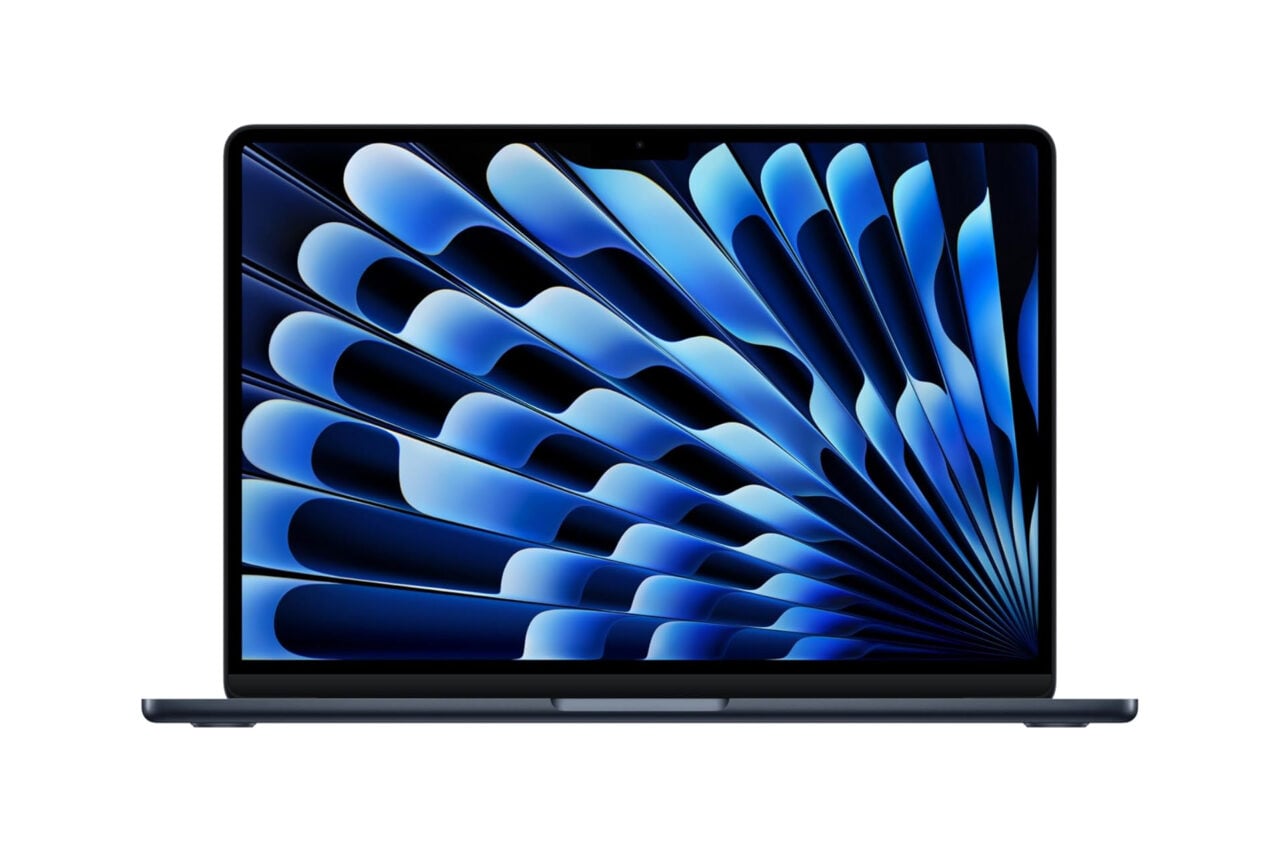Comprehensive Guide to Cat and Dog Breeds in Heartopia with Pet Traits
Are your favourite breeds on the list?
The post All Heartopia Cat and Dog Breeds – Plus, Pet Traits appeared first on Gamezebo.
Are your favourite breeds on the list?
The post All Heartopia Cat and Dog Breeds – Plus, Pet Traits appeared first on Gamezebo.
Alas and alack for Lickity Split, knight hero of The Fortress, prisoner of a villainous Sorceror King. ‘Twas I who named him (I wanted a pun on “Lich” and I’m fairly sure we’ve done “Lich My Balls” several times before) and ‘twas I who led him to his death a whole six rooms away from his cell… and ‘twas I who then resurrected him as a wizard and got him killed again, a mere five minutes later.

Assassin’s Creed Shadows did not manage to enter the top 10 most downloaded titles on PlayStation 5 last year, indicating a possible decrease in interest or an increase in competition within the gaming sector. In contrast, Roblox is experiencing major transformations with its AI-driven age verification system, which has allegedly resulted in the loss of extensive user histories, causing frustration among veteran players. Furthermore, game creator Masahiro Sakurai has unveiled answers to one of the enduring enigmas of Smash Bros., broadening our comprehension of the game’s mechanics.
Masahiro Sakurai, recognized for his meticulous game design philosophy, recently disclosed that the healing values for food items in Smash Bros. typically correspond to their actual caloric quantities. This idea was first ignited by a tweet from the official Kirby Twitter handle, which elaborated on how the recovery values of food differ based on their caloric content in the game. The analysis behind this apparently random healing system underlines the developers’ dedication to accuracy and meticulousness.
After more than twenty years without a new entry, the iconic figure Ecco the Dolphin is poised to return with several new projects underway, as confirmed by creator Ed Annunziata. The announcement points to a renewed emphasis on environmental themes and nostalgic gaming experiences, as the developer aims to introduce Ecco to a fresh audience of players.
Nintendo, Xbox, and PlayStation, in a collaborative announcement, reiterated their commitment to maintaining player safety in online settings. This declaration coincides with Roblox’s initiative to enforce AI-driven age verification, which has prompted controversy among its users due to the significant alterations in the platform’s social structure.
As Roblox implements its new AI age verification system, many users have voiced concerns about the disappearance of chat histories and community connections within the game. Players have reported feeling despondent due to the abrupt transition, which creates voids in their social narratives and undermines previous interactions in the community.
Speculations are rife concerning substantial updates arriving for the PS5 Pro, particularly the “PSSR2.0” update that plans to enhance performance via improved AI upscaling technology. Anticipated enhancements include superior frame rates and resolution quality, elevating the gaming experience as fans eagerly await further disclosures regarding hardware modifications.
In the latest download rankings, Battlefield 6 was reported as the second-most downloaded game on PS5 last year, emphasizing its widespread appeal alongside anticipated titles like NBA2K26. Assassin’s Creed Shadows ranked lower on the list, prompting inquiries about its reception in comparison to earlier installments.
This summary of gaming updates underscores notable transitions within the industry, from player engagement challenges in platforms such as Roblox to the intricate development details introduced in classic franchises. As gaming evolves, these discussions remain vital for understanding user dynamics and market developments.
You can’t take a step on Steam this week without stumbling over a body. Step forward and you’ll trip over a cold-to-the-touch mobster with a knife in their back. Step to the left and, oh God, it’s a wizened academic clutching a poisoned apple in their rigor mortis grip. But one step to the right and you’ll find the decapitated head of a curmudgeonly mayor who had recently made enemies of everyone in their small town. Yes, it’s Steam Detective Fest and murder is in the air.
Until January 19th, hundreds of developers are offering discounts and demos of their murder mysteries. With so many bodies piling up, it is hard to know where to start your investigations. So, to test the mettle of these murder makers, I set them a challenge.
How would they kill Humpty Dumpty and get away with it?

# Animal Crossing: New Horizons 3.0 Update: A Return to Island Life
The eagerly-awaited 3.0 update for *Animal Crossing: New Horizons* has officially launched, drawing back former players to their once-neglected islands. This update offers a combination of fresh content, split between a complimentary segment accessible to all users and a paid extension exclusive to Nintendo Switch 2 owners.
## Key Features of the Update
### Kapp’n’s Seaside Hotel
Central to the 3.0 update is Kapp’n’s seaside hotel, now built on island piers. Isabelle will announce the hotel’s grand opening, where players can meet Kapp’n and Tom Nook. The main objective involves embellishing rooms with Leilani, Kapp’n’s spouse. Players can assist her in transforming two rooms daily, earning 200 tickets for each decorated room. Soon, tourists will fill these spaces, exploring the island and engaging with residents.
### Hotel Pier Customization
The hotel pier is also customizable, allowing players to inject their personality into the wooden structures. While some restrictions exist due to fixed installations, players can still enjoy personalizing the area with seasonal decor, including delightful winter-themed decorations.
### Resetti’s Reset Service
Another noteworthy addition is Resetti, who offers players the chance to reset parts of their island for a daily charge of 60,000 bells. The first use of his service is free, presenting a cost-effective option for players desiring significant modifications to their island design.
## Enhancements to Gameplay
### New Movement Mechanics
This update brings forth new movement functionalities that allow for more precise actions such as terraforming and decorating. By holding the L button, players can move in a grid system, enhancing accuracy in item placement and digging.
### Crafting Improvements
Crafting has been refined as well. Players can now craft using items straight from their home inventory without the need to carry materials in their pockets. This streamlining provides a smoother crafting experience, especially with the new bulk crafting feature, enabling players to create up to 10 items simultaneously.
## Conclusion
With the 3.0 update, *Animal Crossing: New Horizons* introduces both significant and subtle enhancements to elevate the gameplay experience. Whether it’s embellishing Kapp’n’s hotel, interacting with new tourist characters, or enjoying improved crafting mechanics, players have numerous reasons to return to their islands and immerse themselves once more in the delightful world of New Horizons.
I only have to skate a few meters before the piercing drum of rifle fire fills my ears. Armed with my trusty can of spray paint, I cover the hostile soldiers in splotches of bright colour while rollerblading circles around them. They stumble about, trying to keep me in their sights. Stopping to complete an unfinished bit of graffiti on one of the walls, spreading colour between gaps in a template, the soldiers gather around me. Unable to target me, they mill about in the way as I try to finish, making it a touch more difficult to work out if I’ve left any blank spaces.
I’m playing an early version of Palestine Skating Game, which offers a test of its Jet Set Radio and Tony Hawk’s Pro Skater-inspired rollerblading and painting amid a stylised rendition of war-torn Gaza.

### The Performance Enigma of Monster Hunter Wilds on PC
**Introduction**
The popular action RPG, *Monster Hunter Wilds*, crafted by Capcom, has faced performance challenges on PC since its release. Players have voiced their dissatisfaction over encountering notable FPS drops, yet a newly suggested theory presents a fascinating possible explanation tied to the game’s various DLC expansions.
**DLC and Performance Challenges**
An in-depth exploration of the performance enigmas of *Monster Hunter Wilds* was recently performed by a Reddit user named u/de_Tylmarande. Through their experience with a friend’s Steam account—where all downloadable content for the game was acquired—they observed a striking contrast in performance. While using their own account, which lacked any DLC, FPS plummeted to as low as 20-25 during hub activities, whereas their friend’s account maintained FPS levels above 80.
This difference sparked additional examination into how the game verifies DLC content, resulting in the theory that the game’s performance might be negatively impacted by the lack of DLC. According to u/de_Tylmarande, the fundamental issue may arise from the game’s code related to DLC checks, which could be unnecessarily taxing performance for players without the extra content.
**Evidence and Community Response**
To validate their claims, u/de_Tylmarande developed a custom mod enabling players without DLC to circumvent these checks, leading to marked enhancements in FPS. This discovery quickly gained popularity within the *Monster Hunter* community, sparking conversations about potential solutions and encouraging more players to utilize the mod for better performance.
Alongside this finding, u/de_Tylmarande shared a background of tackling performance issues in Capcom’s games. They had previously reached out to Capcom with a solution for *Dragon’s Dogma 2*, which was included in a subsequent update. This background lends credibility to their observations regarding *Monster Hunter Wilds*.
**Impact of Updates and DLC Quantity**
Adding further complexity, many players have indicated that performance appears to worsen with each new game update paired with DLC releases. At present, there are over 190 distinct DLC items available for *Monster Hunter Wilds* on Steam, raising concerns that as additional content is introduced, players without DLC may experience further declines in performance.
This association suggests a necessity for Capcom to review how their game manages content checks, as rectifying these matters could yield substantial enhancements for a significant portion of their player community.
**Capcom’s Reaction and Future Plans**
Currently, Capcom has yet to acknowledge or confirm u/de_Tylmarande’s findings or indicate whether they will tackle these performance issues related to DLC checks in forthcoming patches. While the modder has specified that they do not believe these issues are intentional, it highlights an urgent requirement for the company to address the underlying code flaws adversely affecting gameplay.
The community is keenly awaiting whether future patches will tackle these issues, especially with the hope of improved performance for the players impacted as a top priority.
**Conclusion**
As players continue to deal with technical difficulties in *Monster Hunter Wilds*, the examination of the relationship between the game’s DLC and performance is both timely and essential. With committed community members like u/de_Tylmarande discovering possible fixes and fostering discussions, there remains hope that Capcom will take notice and consider resolving these significant performance concerns in future updates. Correcting these bugs could not only enhance gameplay but also boost customer satisfaction within an already lively community.
Young’un James Bond game 007: First Light has had a little redo of its PC system requirements, after “an internal miscommunication” – according to developers IO Interactive – led to last week’s specs reveal containing some whoopsies. “We’re sorry for the confusion this caused and appreciate everyone who brought it to our attention”, sayeth the company’s tXeet.

Apple didn’t hesitate to kick off the new year with an enticing offer on one of its best-selling laptops. Just a few weeks into 2026, the 2025 MacBook Air has already seen a significant price reduction, making it considerably more affordable for students, professionals, and casual users as well. Amazon is now featuring the M4-equipped MacBook Air with 256GB of storage priced at $799, a considerable drop from its initial $999 tag.
Weighing only 2.7 pounds, this newest MacBook Air continues to be the perfect partner for commuters, travelers, and anyone who favors a lightweight setup without compromising on performance. The sleek design conceals remarkable hardware, including a 10-core CPU and up to a 10-core GPU, and can support as much as 24GB of unified memory. Driven by Apple’s M4 chip, the laptop provides a significant boost in speed—up to double the performance of the M1 Air and significantly quicker than previous Intel-based models (23 times faster, to be specific).
### Everyday Performance
Apple designed the M4 chip to work flawlessly with its expanding collection of Apple Intelligence features. As a result, users experience smoother multitasking, faster response times, and enhanced efficiency across resource-intensive applications. Whether you’re managing spreadsheets, editing photos and videos, or running numerous apps and browser tabs, the MacBook Air manages it all effortlessly while remaining cool and silent, thanks to its fanless design.
Battery life continues to be one of the Air’s greatest strengths. With up to 18 hours of usage on a single charge, it’s engineered to endure long work periods or extended study times without the constant need to find a power outlet.
The improved 12MP front-facing camera captures clear 1080p video, making it a great option for remote work, online classes, and video conferences. Coupled with a three-microphone array, voice clarity is exceptional even without extra accessories.
Usability features for daily tasks are well addressed. The backlit Magic Keyboard ensures a comfortable typing experience in various lighting situations, while Touch ID allows quick and secure access. Connectivity options include two Thunderbolt ports for fast data transfers and external displays, MagSafe charging for increased safety, and – thankfully – a conventional headphone jack for wired audio enthusiasts who refuse to part with their AUX-based headphones.
For those already part of Apple’s ecosystem, the MacBook Air integrates smoothly with other devices. Features like AirDrop, iMessage, and Handoff enable a seamless transition between an iPhone, iPad, and Mac.
Several configurations are currently available at discounted rates. The base 256GB model begins at $799, while the 512GB variant is priced at $999, with both including 16GB of RAM. A higher-end option featuring 24GB of RAM and 512GB of storage is available for $1,199. All represent a $200 discount from their original prices and come in four finishes: sky blue, silver, starlight, and midnight.
Find the bugs!
The post Heartopia Insect Locations – Weather and Spawn Times For All Bugs appeared first on Gamezebo.